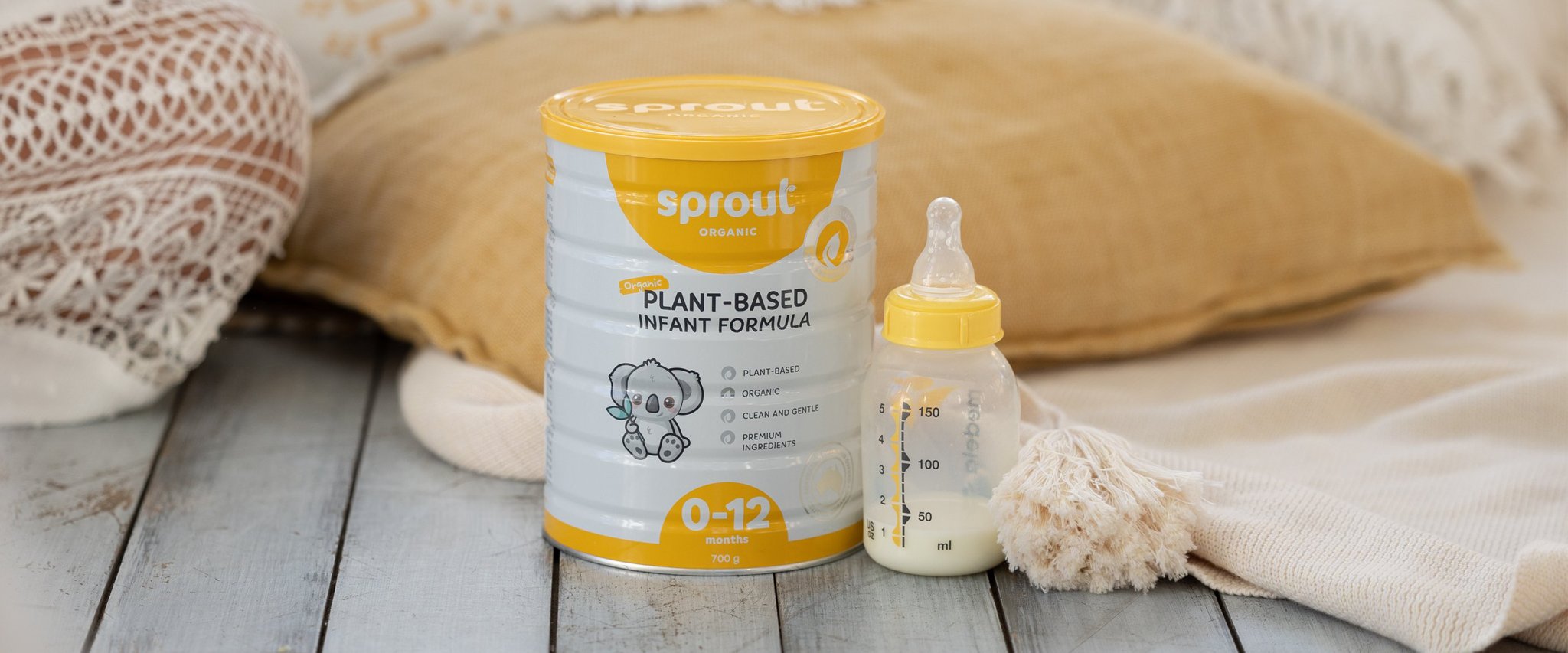Does Your Bub Suffer from Food Allergies? Here’s How to Find Out...
Did you know that Australia has the highest incidence of food allergy in the world per capita? Allergies to food are a common concern for many parents. Babies are particularly susceptible to allergies because their immune systems are still developing and they are exposed to many new substances for the first time.
WHAT IS A FOOD ALLERGY?
A food allergy is when your body’s immune system reacts to a particular food when it enters your body. Your immune system reacts by releasing histamine and other substances into your body’s tissues which leads to an allergic reaction. Food allergies affect around 1 in 10 one-year-old children in Australia.
WHAT ARE THE COMMON ALLERGENIC FOODS?
A baby could be allergic to any food but the most common allergenic foods that are responsible for approximately 90% of all reactions in babies are cow’s milk, wheat, eggs, peanuts, tree nuts, soy, fish and shellfish. In general, allergies to egg, milk, soy and wheat are transient and children will usually grow out of them. However, allergies to peanuts, tree nuts, fish and shellfish tend to be life-long.
WHAT ARE THE SYMPTOMS OF FOOD ALLERGIES?
Allergic reactions to foods can range from mild to severe and in some cases can be life-threatening. The symptoms of immediate-onset food allergies usually appear within a few minutes. But sometimes symptoms can appear 1-2 hours after your baby has eaten the food. Symptoms of mild-to-moderate food allergies in babies include:
- swelling of their face, lips or eyes
- bumps (hives) on their skin
- stomach pain
- vomiting
Signs of a severe food allergy (anaphylaxis) include:
- difficulty breathing or noisy breathing
- swollen tongue
- swelling or tightness in the throat
- difficulty talking or hoarse voice
- wheezing or coughing
- dizziness
- collapsing
RECOMMENDATIONS FOR REDUCING THE RISK OF FOOD ALLERGIES
When introducing solid foods to your baby, include common allergy-causing foods by 12 months in an age-appropriate form, such as well-cooked egg and smooth peanut butter/paste. Studies show that this may reduce the chance of developing food allergies. Only introduce one common allergy-causing food at each meal, so that the problem food can be easily identified if there is an allergic reaction. If your baby has an allergic reaction to food, stop giving that food and seek medical advice. Once a new food has been introduced, continue to give the food to your baby at least twice a week as part of a varied diet. Trying a new food but not eating it regularly may cause a food allergy to develop.
Talk to your paediatrician if your baby has eczema, because this can put your baby at higher risk for developing a food allergy. And children with one food allergy may develop other food allergies. Babies with an egg allergy, for example, are at higher risk of developing a peanut allergy. If your baby already has a food allergy, your pediatrician can give you advice on when to introduce other potential allergens.
HOW ARE FOOD ALLERGIES DIAGNOSED & TREATED?
If you are concerned that your baby may be experiencing food allergies or has any of the symptoms mentioned above, see their paediatrician. Your baby may be referred to an allergist or immunologist for testing and diagnosis.
Food allergies are best treated by determining what foods your child is allergic to and being careful to avoid them. If they are at risk of severe food allergy (anaphylaxis), you should work with their doctor to create a personal ASCIA action plan for anaphylaxis.
It is essential to read and make sure you understand all food labels. Be aware that some allergenic foods have different names – for example, cow’s milk protein might be called ‘whey’ or ‘casein’. But by law, the most common allergens must be plainly stated on food labels.
When formulating Sprout Organic products, it was our mission to produce products that were inclusive, nutrient-rich and free from foods that cause 90% of allergic reactions so all kids are able to enjoy healthy and wholesome foods.






Leave a comment